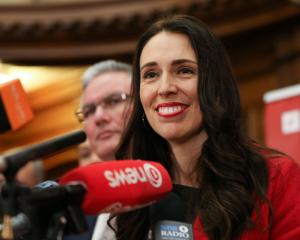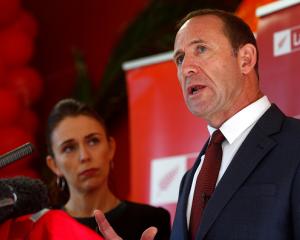The Otago Daily Times is profiling the region's electorates, the candidates, and the issues in the lead-up to this month's general election. Reporter Eileen Goodwin takes a look at Te Tai Tonga.
The Maori Party and Labour are slogging it out for Te Tai Tonga.
The country's biggest electorate, taking in the South Island, Wellington and Lower Hutt, was the prize of the Maori Party's 2008 campaign - its only new seat, having retained another four.
The race for Te Tai Tonga is tight, with the outcome possibly influenced by a surprising performance on the hustings of fired-up Mana Party candidate Clinton Dearlove.
It is unclear whether Labour or the Maori Party will be hurt if Mr Dearlove splits the vote, with pundits divided on that.
With Maori seats usually a referendum on national rather than local issues, the Maori Party could be punished for its confidence and supply arrangement with the National-led Government.
The Canterbury earthquakes might affect how Christchurch residents vote, although the seat is probably won or lost in Wellington.
Planned South Island offshore oil exploration, especially in light of the Rena grounding, could help the Green vote, as could concern over Ngai Tahu's large-scale dairy farm proposal.
Another possible vote-splitter is Green candidate Dora Langsbury, whose 2076 candidate vote total was bigger than Maori Party MP Rahui Katene's 1049 majority.
Of charges it is supine to National, the Maori Party points out it voted against the Government more than Labour did. It emphasises historic big-ticket gains wrung from supping with National.
However, to some Maori, the party has become the pragmatic adjunct to a Government which has redistributed wealth to better-off New Zealanders through tax changes, and introduced union-defying measures like the 90-day dismissal Bill.
Adept at voting tactically, Maori voters might consider a split vote favouring the Maori Party, which could be working with National or Labour after the next election.
Labour is likely to better its party vote majority, 5419 more than the Maori Party last time.
Strong conservative values of many Maori might counsel against National's asset sale plan, and push some to give Labour both ticks. However, some might be genuinely excited by talk of Iwi taking stakes in the assets.
Mrs Katene was not seen as a "star performer" in her first term, University of Otago political scientist Dr Bryce Edwards said.
"She has been seen to be too compliant in the Maori Party relationship with National."
However, she may have redeemed herself through dealing well with Christchurch earthquake issues, Dr Edwards said.
Hanging on to Te Tai Tonga was a factor in the survival of the Maori Party itself, Dr Edwards said.
When contacted, Mrs Katene said party polling indicated she was ahead, and she felt confident of retaining the seat. She acknowledged this had been contradicted by a poll showing Labour candidate Rino Tirikatene in the lead, but believed that was "wrong".
Jobs and the environment were voters' top concerns, with asset sales not a major issue, she said.
How Ngai Tahu deals with offshore oil exploration was also a talking point.
Mr Tirikatene's family ties to the seat has given him a strong footing, underpinned by a solid performance on the hustings, where he has been hammering the Maori Party for its deal with National.
His grandfather, Sir Eruera Tirikatene, represented Southern Maori from 1932 until his death in 1967, and his aunt, Whetu Tirikatene-Sullivan, was MP from 1967 until 1996.
Using 2006 Census data, the electorate is younger than the New Zealand average (59.8% under 30, compared with 41.7% nationally).
They are more likely to have no academic qualification (29.9%, compared with 22.4% nationally).
Back in 2006, 16.2% of all New Zealanders earned over $50,000, compared with 11.9% of those identifying as Te Tai Tonga. While they were likely to earn less, Te Tai Tonga residents aged 15 and over were more likely to be in full-time work - 54% compared with 48.4% of New Zealanders.










